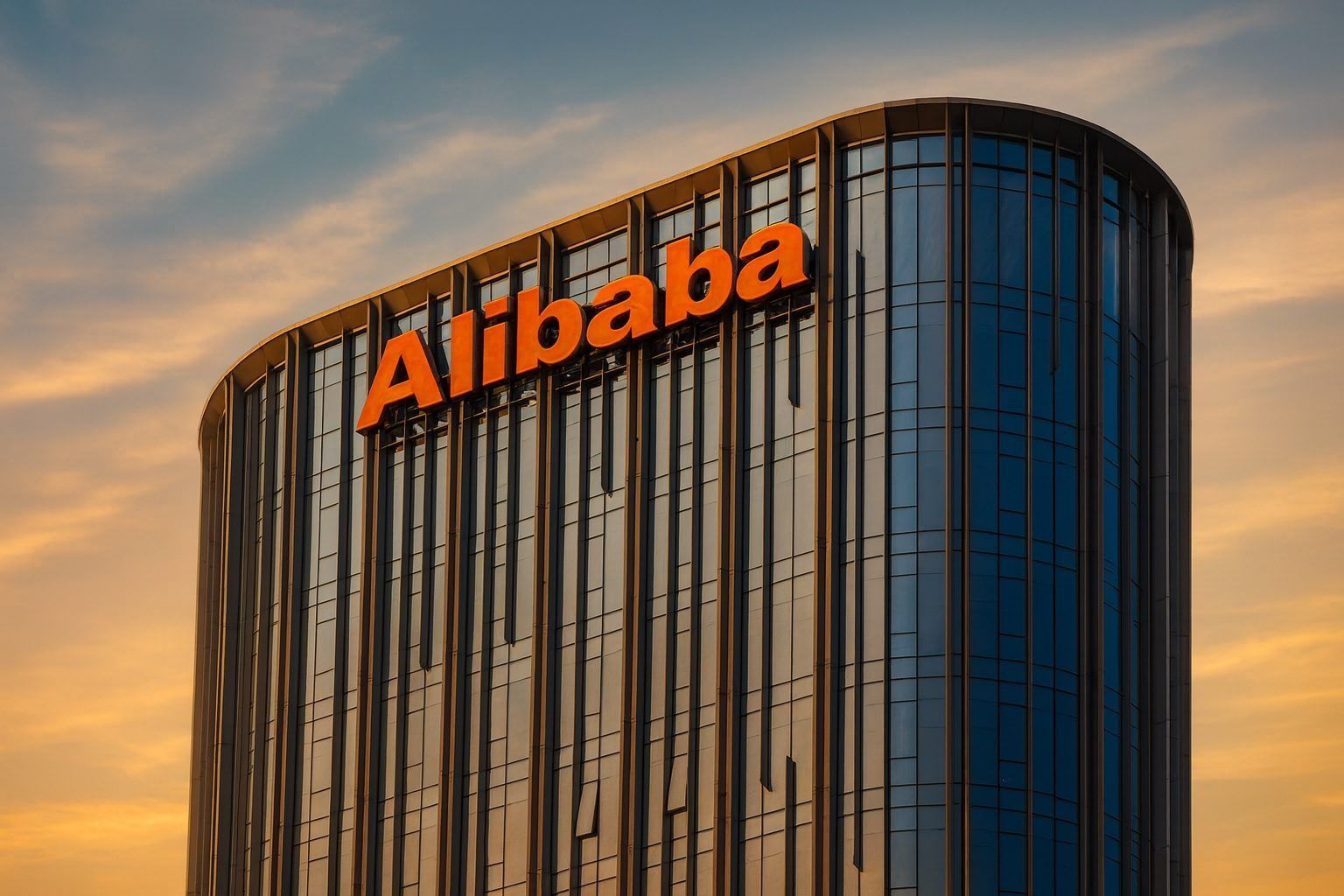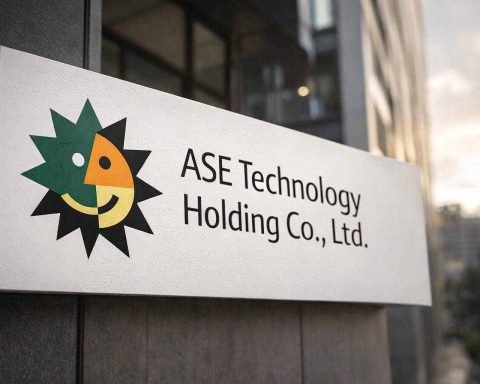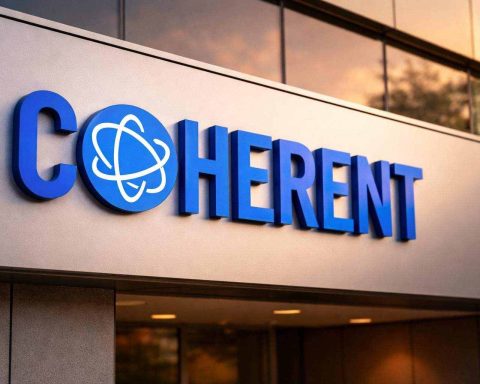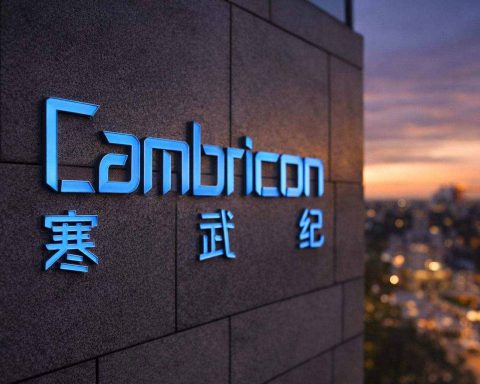Published: November 23, 2025
Alibaba Group Holding Ltd’s U.S.-listed shares (NYSE: BABA) head into a pivotal week trading around $153 per ADR, valuing the Chinese tech giant at roughly $365 billion and leaving the stock up about 80% in 2025 after a brutal multi‑year slump. 1
In the last 24 hours, several fresh storylines have emerged around Alibaba that matter for investors, regulators, and rivals alike:
- New U.S. and global institutional ownership disclosures show big-name asset managers actively rebalancing their BABA positions. 1
- Alibaba is deepening its South Korean e‑commerce footprint via a joint venture with Shinsegae and Gmarket, heightening competition with local champion Coupang. 2
- Logistics arm Cainiao has quietly taken full control of cross‑border logistics specialist 4PX, bolstering Alibaba’s global shipping network. 3
- The company is still digesting last week’s White House memo allegations about tech support to China’s military — claims Alibaba strongly denies. 4
- All this comes just two days before Alibaba’s September‑quarter earnings on November 25, one of the most watched events for Chinese ADRs this month. 5
Below is a detailed look at what changed today and how it fits into the bigger BABA story.
BABA’s ADRs last closed near $152.93, with intraday trading in recent sessions swinging between the high‑140s and mid‑150s. 6
Key valuation and risk metrics from recent filings and market data: 7
- Market cap: ≈ $365 billion
- 12‑month range: ~$80.06 (low) to ~$192.67 (high)
- P/E ratio: ~17.8
- PEG ratio: ~2.4
- Beta: ~0.19 (much less volatile than many big tech peers)
- Balance sheet: low net leverage, with a debt‑to‑equity ratio around 0.19 and solid liquidity (current and quick ratios ~1.45).
According to MarketBeat’s aggregation of analyst coverage, Alibaba currently carries a “Moderate Buy” consensus rating, with a consensus price target around $190.18 — implying meaningful upside from current levels. Several global brokerages, including CLSA, Nomura and others, have raised their targets over the last two months. 1
On the sentiment side, BABA is back on the radar of growth‑oriented commentators:
- A Motley Fool column today framed Alibaba as its featured “ultimate growth stock” pick for investors with $1,000 to deploy, arguing that the market is still undervaluing its long‑term potential. 8
- A Seeking Alpha note, also dated November 23, says the “AI boom is quietly rewriting [Alibaba’s] narrative”, coupled with a rating upgrade. 9
That bullish narrative sits alongside substantial risk — especially geopolitical — which has again come into sharp focus this month (more on that below).
Fresh 13F filings: institutional investors shuffle their Alibaba exposure
Several new institutional filings highlighted by MarketBeat today show confident buying from some large funds and heavy trimming from others: 1
- American Century Companies Inc.
- Boosted its Alibaba stake by 10.7% in Q2.
- Now holds about 2.54 million BABA shares — roughly 0.11% of the company — valued near $288 million at the time of filing. 1
- Brandywine Global Investment Management LLC
- Cut its position by 30%, selling around 40,050 shares in Q2.
- Still holds roughly 93,318 shares, worth about $10.6 million in the latest filing. 10
- Evelyn Partners Investment Management Services Ltd
- Slashed its holding by about 90.5%, selling over 10,000 shares.
- Now owns just 1,066 shares, valued around $121,000. 7
MarketBeat notes that, across these filings, institutional investors and hedge funds collectively own around 13.5% of Alibaba’s shares, signaling that large professional players remain deeply involved in the name even as they rebalance positions. 1
For retail traders, the takeaway is less “everyone is buying” and more that BABA is very much back in the institutional conversation — a notable change from the sentiment nadir during China’s regulatory crackdown in 2021–2022.
Korea push: Alibaba and Shinsegae’s ‘Grand Opus Holding’ turn up the heat on Coupang
One of the most concrete strategic developments today comes from South Korea. Reports in Korean and Chinese‑language media confirm that Alibaba International Digital Commerce and Shinsegae Group have formally kicked off operations at their joint venture, Grand Opus Holding, targeting the country’s fast‑growing e‑commerce market. 2
Key details:
- Ownership and governance
- Alibaba International and Shinsegae each hold 50% of the JV, sharing capital and know‑how. 11
- The board has now been fully formed, chaired by Shinsegae Group’s chairman Chung Yong‑jin, with senior figures from Gmarket, AliExpress Korea (Ray Zhang) and Alibaba International’s global markets unit (James Dong) all serving as directors. 2
- Launch campaigns
- JV subsidiaries kicked off large‑scale promotions this month:
- Competitive impact
- Market data from WiseApp shows AliExpress and rival Temu already rank second and third in monthly active users among general shopping apps in Korea, behind only Coupang and ahead of home‑grown platform 11st. 2
- Analysts and industry experts quoted in local coverage warn that a surge of low‑priced Chinese goods flowing through Gmarket and AliExpress could intensify a “price war,” squeezing margins for Korean manufacturers and retailers. 2
In short, Alibaba is moving from being just a cross‑border marketplace in Korea to a structurally embedded player via a powerful local partner and existing platforms. For BABA’s international commerce segment, this JV is a lever to:
- Expand GMV and seller base outside China.
- Better localise logistics and marketing.
- Counter the rise of competitors like Temu in a strategically important, affluent market.
Cainiao gains full control of 4PX: cross‑border logistics gets a turbo‑boost
Also today, industry outlet E‑Commerce Pai reported that Cainiao, Alibaba’s logistics arm, has become the 100% owner of cross‑border logistics specialist 4PX (递四方). 3
What changed:
- Over the past year, Cainiao repeatedly increased its capital in Shenzhen 4PX Information Technology Co., Ltd., eventually reaching full ownership. 4PX InfoTech in turn fully owns Shenzhen 4PX Express Co., Ltd. 3
- Cainiao vice‑president Xiong Wei is now listed as the sole director and legal representative of both the information‑technology and express entities. 3
Why it matters:
- 4PX positions itself as a global cross‑border e‑commerce supply‑chain service provider with:
- Over 10,000 employees,
- 100+ branches worldwide,
- Service coverage for around 1 million cross‑border merchants and more than 200 million end users. 3
- It operates dense global parcel (GPN) and global fulfillment (GFN) networks spanning 200+ countries and regions with at least 18 overseas sorting centers, plus multi‑layered services like global returns, direct‑ship parcel delivery, and import trans‑shipment. 3
For Alibaba, integrating 4PX more tightly into Cainiao’s “smart logistics” framework should:
- Strengthen service levels for AliExpress, Lazada and other international platforms.
- Improve delivery times and reliability for cross‑border shipments.
- Potentially expand higher‑margin logistics services to third‑party ecommerce players.
Given that logistics is increasingly a key differentiator in the global “fast fashion and cheap gadgets” wars, today’s move quietly reinforces Alibaba’s infrastructure moat at a time when rivals like PDD’s Temu and JD.com are also investing heavily in international shipping.
Qwen AI assistant: Alibaba’s consumer “everything app” bet
While not announced today, Alibaba’s Qwen AI assistant remains one of the hottest topics around the stock and is being re‑highlighted in weekend wrap‑ups — including Benzinga’s consumer‑tech round‑up this morning. 12
On November 18, Alibaba launched a free mobile and web Qwen App in China, built on its most advanced large language model. Key points from Benzinga and Reuters coverage: 13
- Qwen is pitched as a personal AI assistant that can:
- Generate full research reports,
- Build multi‑slide PowerPoint presentations,
- Create images and handle a broad range of work and life tasks.
- Alibaba says an international version is coming, positioning Qwen to compete more directly with apps like ChatGPT. 13
- The app quickly climbed into the top five free apps on Apple’s iOS store in both mainland China and Hong Kong during its second day of public beta. 13
- Analysts quoted in Chinese and Hong Kong media describe Qwen as a candidate to become a “super‑app for the AI era”, much as WeChat defined the smartphone era. 13
Alibaba has tried consumer AI before (for example, the Tongyi app and AI features in its Quark browser), but adoption was modest — Tongyi reportedly had under 7 million MAUs as of September, far behind ByteDance’s and DeepSeek’s chatbots. Qwen is intended to be both more capable and more tightly integrated with Alibaba Cloud and the group’s broader ecosystem of commerce, payments, maps, food delivery and entertainment. 13
For BABA’s investment case, Qwen matters because:
- It can drive cloud demand, as more workloads sit on Alibaba’s home‑grown models.
- It offers a potential consumer AI revenue stream (subscriptions, productivity tools, ads, or commerce tie‑ins).
- It helps pivot Alibaba’s narrative from “legacy Chinese ecommerce” toward AI platform leader, which is exactly what many bullish analysts now emphasise. 13
Singles’ Day data feed expectations for Tuesday’s earnings
Although Alibaba has not released a headline Gross Merchandise Volume (GMV) number for this year’s Singles’ Day (Double 11) festival, third‑party trackers provide some colour:
- Data from retail analytics firm Syntun suggests China’s major ecommerce platforms generated around 1.7 trillion yuan (~$238 billion) of GMV during the extended 2025 Singles’ Day period. 14
- That’s solid mid‑teens growth versus 2024, but slower than the prior year’s ~27% jump, reflecting a still‑cautious Chinese consumer coping with property‑market stress, weak wage growth and high youth unemployment. 14
- JD.com reported record turnover and a surge in order volume, while Alibaba instead highlighted strong growth at individual merchants on its Tmall and Taobao platforms without disclosing total GMV — a pattern seen in recent years. 14
Investors are now looking to Alibaba’s September‑quarter (fiscal Q2 2026) earnings, due on November 25, for hard numbers on: 5
- Core China commerce recovery, including Taobao and Tmall.
- Growth in international commerce — especially AliExpress, Lazada and the emerging Korea business.
- Cainiao revenue and margins, particularly in cross‑border.
- Early financial signals from Qwen and other AI‑related services.
- The ongoing share repurchase programme and the impact of the $3.2 billion zero‑coupon convertible note offering completed in September. 5
Geopolitical overhang: White House memo and Alibaba’s denial
Looming over all of Alibaba’s operational wins is a fresh national security controversy that erupted last week and continues to cast a shadow over the stock.
According to reporting by the Financial Times, Reuters and others, a White House national security memo alleges that Alibaba has provided technology and data that could aid the People’s Liberation Army (PLA) in operations targeting U.S. interests. 4
The memo reportedly claims that:
- Alibaba has offered cloud computing and AI‑related services to PLA‑linked entities.
- The company gave Chinese authorities and the military access to customer data, such as IP addresses, Wi‑Fi information and payment records.
- Some employees allegedly passed on knowledge of “zero‑day” software vulnerabilities — flaws unknown to developers. 4
News of the memo triggered an immediate market reaction, with BABA’s U.S.‑traded shares dropping around 4% on the day of the initial reports. 15
Alibaba’s response has been unequivocal.
Across multiple outlets — including Global Times, The Information, Arab News and others — the company has flatly denied providing military support, calling the allegations “completely false” and “politically motivated.” 16
Key points from the company’s stance:
- Alibaba says it operates as an independent commercial enterprise, not an arm of the Chinese state. 16
- It emphasises compliance with applicable laws and states that it does not share user data with the Chinese military in the way described. 16
- The company argues the claims risk undermining global cooperation and are emerging just as U.S.–China trade talks show tentative progress. 4
For investors, the memo underscores an old reality: geopolitics remains the single biggest exogenous risk for BABA’s valuation, from potential sanctions or delisting moves to restrictions on its cloud business abroad. Even if no immediate policy action follows, such headlines can compress Alibaba’s multiples simply by raising perceived tail risk.
How the pieces fit together for BABA right now
Putting today’s developments in context, Alibaba’s story heading into earnings week looks something like this:
- Fundamentals and sentiment are improving.
- The stock is up roughly 80% year‑to‑date, significantly outperforming major U.S. indices and many Chinese peers, as investors re‑rate its earnings power and AI leverage. 17
- Analyst targets and commentary from outlets like Seeking Alpha and The Motley Fool are increasingly focused on AI, logistics and international commerce as catalysts. 9
- Operationally, the flywheel is spinning faster outside China.
- AI is reshaping the narrative — and expectations.
- Qwen and Alibaba’s broader AI strategy are now central to many bullish theses, potentially supporting higher long‑term multiples if execution matches the hype. 13
- But geopolitical and regulatory risks are as loud as ever.
- The White House memo saga shows how quickly sentiment can swing on security and data‑sharing concerns, regardless of AI progress or GMV growth. 4
- Separately, in Europe, policymakers are pushing to accelerate new fees and rules on low‑value parcels from Chinese platforms like Alibaba’s, which could erode part of the cross‑border price advantage over time. 18
- Near‑term catalyst: earnings on November 25
What to watch this week if you follow Alibaba (BABA)
For traders, long‑term shareholders, or just those tracking big‑cap China tech, here’s a quick checklist for the coming days:
- Earnings and guidance (Nov 25)
- Revenue growth vs. expectations in core commerce, cloud, and international.
- Adjusted EBIT/EBITDA trends amid heavy AI and logistics investment.
- Management commentary on AI and Qwen
- Monetisation roadmap for Qwen (subscriptions, enterprise features, commerce integration).
- How Alibaba plans to differentiate against both global models and low‑cost local rivals like DeepSeek. 13
- Updates on regulatory and geopolitical issues
- Any new mention of the White House memo or steps to reassure overseas regulators on data governance. 4
- International commerce metrics
- Growth figures for AliExpress, Lazada and especially the Korea JV operations. 2
- Capital allocation
- Pace of share buybacks and use of proceeds from the recent convertible notes in cloud and AI infrastructure. 5
Final note
This article is for information and news purposes only and does not constitute investment advice or a recommendation to buy or sell any security. Alibaba (BABA) remains a high‑profile, high‑beta play on Chinese consumption, global ecommerce and AI — but also on the evolving geopolitical relationship between China and the West.
If you’re considering an investment, it’s essential to weigh Alibaba’s impressive operational momentum against the political and regulatory uncertainties that continue to surround the company.






